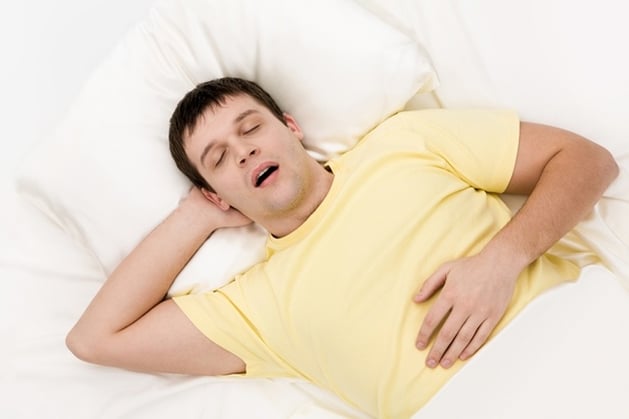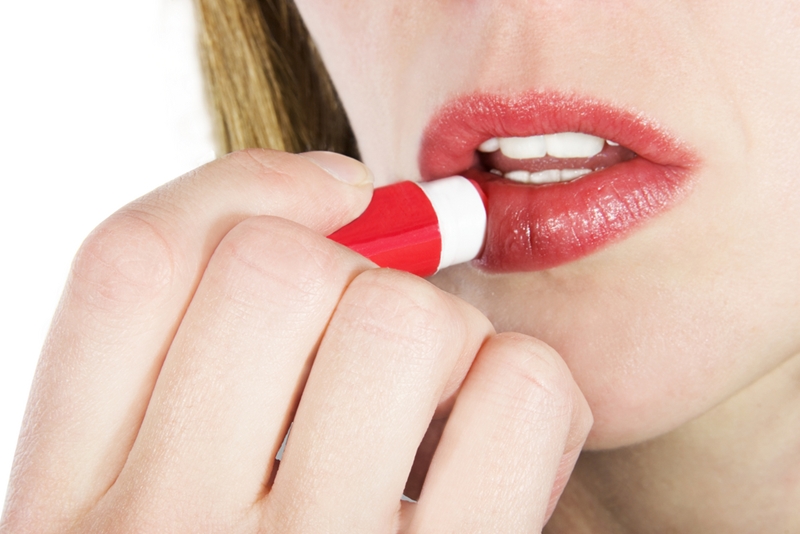
Do your loud snores wake up your partner when you sleep? Has anyone caught you gasping for breath in the middle of the night? If you answered yes to either of these questions, you may have sleep apnea. Sleep apnea is a chronic sleep disorder marked by paused or shallow breathing during sleep.1 These lapses in breathing can last for a few seconds to even a few minutes, which deprives your body of the oxygen it needs.
Sleep apnea also causes you to be extremely tired during active hours of the day, since your oxygen-deprived sleep was not sufficient enough to reboot your body. Beyond the turmoil of chronic fatigue, sleep apnea can also take a toll on your oral health.
This sleeping disorder affects approximately one in 15 Americans, but it all too often goes undetected.2 Therefore, it is crucial to know the signs and symptoms. This way, if you suspect you or your partner have sleep apnea, your physician or dentist can refer you to a sleep specialist for an official diagnosis. Use this guide to understand how the symptoms of sleep apnea can affect your oral health:
Dry mouth
People who suffer from sleep apnea are often open-mouth breathers, so they frequently experience dry mouth. Saliva helps you digest food, protect your teeth from decay, fight infection and balance the natural bacteria in your mouth.3 With a dry mouth, this critical oral health tool is taken away. You can usually feel when there's not enough saliva in your mouth, but if you're unsure, there are several signs that can help determine if this is a problem for you. Waking up with a sticky, dry feeling in your mouth, a sore throat, cracked lips and mouth sores may mean you sleep with your mouth open.
Though these symptoms can be helped by addressing a sleep apnea problem, it's important to treat dry mouth immediately to avoid oral hygiene issues. Restore the moisture by sipping on water before you go to bed and after you wake up, keeping a humidifier in your room while you sleep and chewing sugarless gum during the day.

Your chapped lips may be a sign of dry mouth.
Bruxism
Research presented at the American College of Chest Physicians in 2009 suggests there is a strong relationship between bruxism, otherwise known as teeth grinding, and sleep apnea. According to the study, nearly one in four patients with obstructive sleep apnea suffers from nighttime teeth grinding.4 In fact, many dentists will refer clients to a sleep specialist if they suspect bruxism is related to the disorder.
There are a few theories circulating about the relationship between bruxism and sleep apnea. Bruxism affects 30 to 40 million children and adults, but not everyone who grinds his or her teeth has a sleeping disorder.5 Some physicians believe that stress may be the connecting factor. Lack of sleep can cause mood swings and anxiety, and people prone to those afflictions often grind their teeth.
Regardless of the reason behind the relationship, both bruxism and sleep apnea can be detrimental to your oral health. Morning headaches, painful jaw muscles and joints, and swelling in the lower jaw are all signs you may grind your teeth at night. However, your dentist should be able to tell just by looking at your teeth, as they would have a more flattened appearance and are prone to chipping. During your next appointment, ask your dentist if you grind your teeth at night. With this knowledge, you can wear a mouth guard at night to prevent further tooth damage and look into visiting a sleep specialist.
"Treating sleep apnea is beneficial for your well-being."
Connection to overall health
While this post touches on many of the oral health aspects of sleep apnea, it only scrapes the surface of the overall well-being problems associated with this sleeping disorder. If left untreated, sleep apnea can increase your risk for high blood pressure, heart attack, stroke, obesity and diabetes. Plus, the fatigue caused from lack of sleep can cause your reaction rates to slow down, potentially resulting in serious roadway accidents. Therefore, treating sleep apnea is beneficial both for your well-being and that of everyone around you.
If it's difficult to get out of bed in the morning and you're tempted to nod off in the afternoon, speak to your dentist or regular physician about your risk for sleep apnea. Seeking treatment early can help you combat these ailments.
________________________________________________________________
1. "What is Sleep Apnea?" National Heart, Lung and Blood Institute. http://www.nhlbi.nih.gov/health/health-topics/topics/sleepapnea
2. "Dental screening that could save your life," Dr. Mark Burhenne, CNN, Apr 16, 2013. http://www.cnn.com/2013/04/16/health/dental-screening/
3. "What is Dry Mouth?" Colgate. http://www.colgateprofessional.com/patient-education/articles/what-is-dry-mouth
4. "Teeth Grinding Linked to Sleep Apnea," American College of Chest Physicians, EurekAlert!, Nov 9, 2009. http://www.eurekalert.org/pub_releases/2009-11/acoc-tgl102709.php
5. "Bruxism (Teeth Grinding)," Colgate. http://www.colgate.com/app/CP/US/EN/OC/Information/Articles/Oral-and-Dental-Health-Basics/Common-Concerns/Bruxism-Tooth-Grinding/article/Bruxism-Teeth-Grinding.cvsp
